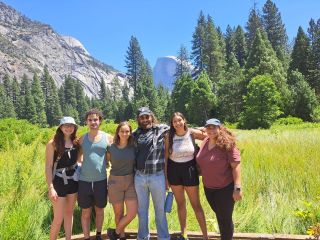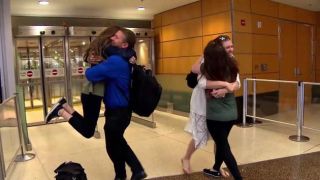Family Dynamics
Gamete Sellers: It's More Than Just a Financial Transaction
Common themes, topics, and issues that arise with former egg and sperm donors.
Posted September 5, 2023 Reviewed by Michelle Quirk
Key points
- Emotional, psychological, and medical issues are common among those who have sold their gametes.
- Understanding what contact with recipient parents or donor offspring might mean is crucial.
- A donor's decision to sell their sperm or eggs can affect their current or future family for decades to come.

There have been many published research studies on the thoughts, feelings, and experiences common to individuals who have sold their gametes. In terms of current knowledge, here are some topics that may be pondered privately, discussed further in therapy sessions, or shared in family settings.
Questions and topics to explore
How do they feel about having sold their sperm or eggs? Themes may include pride, curiosity, shame, regret, embarrassment, fear, guilt, excitement, and ambivalence. Have these feelings changed over time?
How do they feel about their gametes being sold anonymously, for a minimum of 18 years, and the fact that almost anyone can be found via a commercial DNA test? Are they anxious about the possibility/probability of being found?
Do they feel as though they were properly educated about the potential curiosities of their donor children? Eighty percent of 164 surveyed sperm donors and 66 percent of 109 surveyed egg donors indicated that they did not feel like they were adequately counseled about the potential curiosities of the children that would be born from their donations.
Do they think about the children that were created with approximately 50 percent of their DNA? Do they wonder if they share characteristics or worry about their happiness and well-being? Do they worry about being found?
Do they have updated medical information that would be beneficial for the families to know about? Are they feeling guilty about a medical condition that might have been passed along to progeny? Have they had difficulty reporting medical updates to their sperm bank or egg facility? In a 2021 study, 62 percent of surveyed egg donors who had new medical information they thought important for families to know about felt that their clinic was dismissive when they tried to notify them.
How comfortable are they regarding sharing information about having donated with their children, parents, other close relatives, friends, and more distant people (e.g., co-workers or on social media)? Egg donors are likely to have told others in their lives, including their partners, friends, and siblings about their donation and they are somewhat likely to have told their parents and their own children. The majority of surveyed sperm donors were also likely to have shared about their donations with their wives and children, and, oftentimes, their families are supportive and welcoming.For those who haven’t yet told, telling others may only come to the forefront after finding out about progeny. Donors may be embarrassed, afraid, and/or unsure of how to tell. The best way is to be honest, supportive, assuring, and willing to listen to and alleviate any family concerns. Many parents of donors are thrilled to learn about and make connections with their donor grandchildren.
Should they connect with their offspring or the parents of minor children? Thousands of egg and sperm donors have made themselves available for mutual consent contact via the Donor Sibling Registry. As a result, many donor-conceived people (DCP) have been able to grow up knowing their half-siblings and biological parents. The increased use of DNA testing has resulted in many connections with older offspring, many of whom did not know their origin story. There can be inherent challenges with managing these surprising DNA results. Sometimes, it's the donor's children that they're raising that connect via DNA with half-siblings they had no idea were out there. Sometimes DNA connections are made with donors' parents, siblings, and other relatives.
Are they worried about balancing their current families with their newly found donor children? Do they have support from their spouse/partner and the children they're raising? Sometimes partners/spouses/children of donors can feel threatened by a donor's other genetic children and worry about how the family balance might be upset. It's important to remember and assure one's family that widening the family circle doesn't mean that they're decreasing the stability of their current family. After contact has been made, many donors view donor offspring as part of their extended family and have even come to feel the same way about the moms and dads. However, there can be adjustments within the donor’s family once actual contact is made with donor offspring. For a donor with their own family, it may be helpful to frame it as expanding or adding to a family, not taking away from a current family system. Fear, shame, and embarrassment can keep donors from accepting and incorporating donor children into their lives and families.
If they are considering contact, are they worried about rejecting or hurting donor children due to not being able to meet their expectations? Donors may be afraid that they're not good enough or not successful enough. Some may feel that they don't have sufficient time, emotional bandwidth, or family support to establish and nurture new relationships. Some are just not at a good place in life. Connecting with genetic children can expand one's idea of family and be a godsend.
Are they concerned about dozens or hundreds of donor children wanting to connect with them? Half-sibling groups of 50 to 200+ are common. Having the time and emotional bandwidth and feeling completely overwhelmed by the potential number of offspring can be an understandable source of worry—it may feel like an out-of-control situation. In spite of the challenges, many donors have successfully maneuvered through this landscape.
Do they experience any unexpected and/or strong emotional connection with the children they helped to create? Some donors are surprised by how strongly they feel about their biological children.
Have they rejected contact from their donor progeny? Do they feel as though that’s a door that will never be opened, or is there some possibility for a change of heart? Have they properly educated themselves (and their families) on why donor-conceived people desire contact? It's not about looking for a dad/mom, an active parent, or money. It's most often about the innate human desire to know where we come from: our ancestry, family medical history, and close genetic relatives. It is often about wanting to be known and to have one's existence acknowledged as a person that a biological parent/donor can be proud of. Careful and honest consideration, along with a large dose of empathy and understanding can go a long way toward being open to expanding one's idea of family.
How can they balance building offspring relationships with not feeling like they are intruding on their lives or being perceived as a threat to their parents? Exploring how to set healthy boundaries with offspring and families is an important step. Respecting boundaries and meeting people where they are (not where you'd like them to be) is crucial. Sometimes, it's a delicate dance around the boundary line when first defining new donor family relationships.
Do they feel rejected by donor offspring or their families? Some donors have reached out but have not received replies or ongoing communication from offspring or their parents. In most instances, this is not because of who the donor is, but rather an indication of other factors with the offspring and their families' stability, health, and support. Families (especially with nonbiological parents) can feel insecure or fearful about connecting with the donor. Some DCP feel guilt, afraid that their non-bio parent will feel a sense of betrayal or that their child is only curious because they have somehow come up short as a parent. This is usually far from the truth.

Men and women who sell their gametes have a multitude of resources to help educate and support them as they make decisions regarding their current and future families.
References
Diane Beeson, Patricia Jennings, and Wendy Kramer. A New Path to Grandparenthood: Parents of Sperm and Egg Donors. The Journal of Family Issues. DOI: 10.1177/0192513X13489299
Jadva, V. Freeman, T., Kramer, W. & Golombok, S. (2011). Sperm and oocyte donors' experiences of anonymous donation and subsequent contact with their donor offspring. Human Reproduction, 26, 638–645, https://doi.org/10.1093/humrep/deq364
Daniels, K., Kramer, W., & Perez-y-Perez, M. V. (2012). Semen donors who are open to contact with their offspring: issues and implications for them and their families. Reproductive BioMedicine Online, 25, 670–677, DOI: https://doi.org/10.1016/j.rbmo.2012.09.009
Hertz, R., Nelson, M. K. & Kramer, W. (2015). Sperm donors describe the experience of contact with their donor-conceived offspring. Facts, Views, and Vision in Obstetrics and Gynaecology, 7, 91–100
Wendy Kramer, Jennifer Schneider, and Natalie Schultz. US oocyte donors: a retrospective study of medical and psychosocial issues. Human Reproduction. DOI: 10.1093/humrep/dep309 (PDF)




